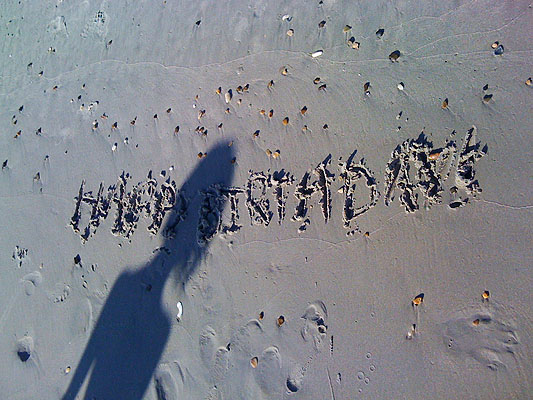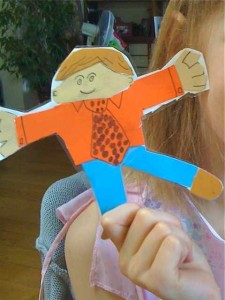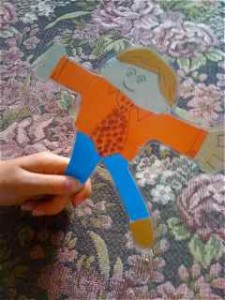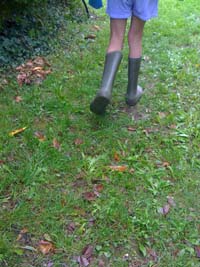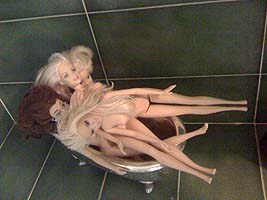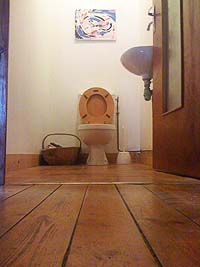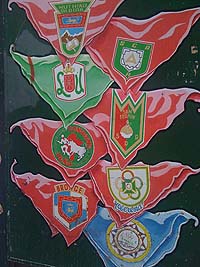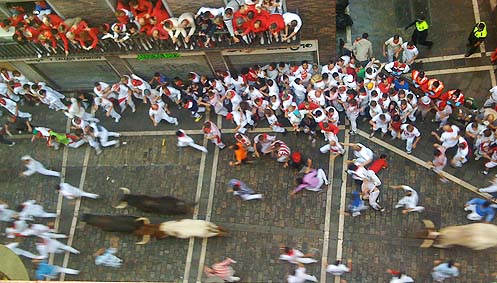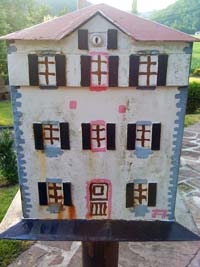Keeping and Telling
“Don’t worry, it’s locked from the inside.” I heard Buddy-roo from behind the closed door. “No-one can come in. Our secret will be safe.”
The authority in her voice quieted her sister and her cousin, both girls older than her, but in this case, entirely compliant. I stepped to the side so I wouldn’t be visible through the crack beneath the door.

Were they doing something forbidden? Should I hover and try to hear what they’re up to? Should I knock and make my presence known and see if their response is a welcoming invitation or the sounds of scurrying about to hide something? If their secret involved some kind of contraband, it would likely be something evil only to their teeth, like sugar packets or stolen cookies. I couldn’t imagine a dangerous secret being harbored behind that closed door, so I let the girls have their little private moment. I continued up the stairs of this enormous, several-storied and multi-decked rental house that’s ours for the week, and said nothing about it, not to De-facto nor to anyone in his family who’s here with us. (Later I was told, unsolicited, how they’d been initiating their cousin into the secret fairy circle, affirming my hunch.)
In a few years, when they are outright teenagers, I could make the very same call and pass by that closed door only to miss the fact that they are piercing their own bellybuttons or cutting lines of cocaine on a mirror. I wasn’t much older than them when I went through a phase of smoking cigarette butts under the bathroom fan. Who knows what mischief is ahead for them – and what headaches for me – and whether I’ll choose to knock on the door and intervene, or walk on by.
~ ~ ~
The jet lag means I wake earlier than the rest of the household, so while De-facto’s family sleeps, I rise and turn on the coffee pot that my mother-in-love set up as good-to-go the night before. I write in my journal, catch up on some blog reading, attend to email, all before 7 am. Short-pants was up early this morning, too, so we walked down to the beach and took a stroll along the shoreline, pressing our bare feet into the wet sand just at the point where the sea water stretches its webbed fingers before it ebbing back into the ocean. We held hands and said nothing, partially because it’s hard to hear each other over the sound of the surf, partially because we had nothing to say.
Not far from the steep wooden stairs that lead to and from the beach, we found several empty canvas chairs left out in front of one of the beachfront homes.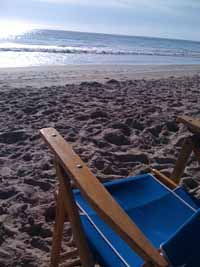 Since we were not yet ready to return to our house and the people who by now would be up and about making more coffee and eating cereal, we sat in them and watched the surf. Short-pants carved shapes in the sand with her nimble toes.
Since we were not yet ready to return to our house and the people who by now would be up and about making more coffee and eating cereal, we sat in them and watched the surf. Short-pants carved shapes in the sand with her nimble toes.
“What are you thinking about in your mind?” This is something my father used to say to me, just to make conversation.
“Nothing,” she said.
This is not her typical response. She usually volunteers some tidbit of information: a joke she made up, a poem she’s writing, a counting game she’s playing in her head.
I didn’t press her. The question is slightly impertinent and I never really expect an answer. Only now that I hadn’t been given one, I wondered if this is possibly the beginning of the unraveling that will occur between us, part of the necessary uncoupling of mother and child. The tell-all intimacy I’ve enjoyed up until now will take a hiatus for those teenage years, still far away but snarling at me from the future, like a secret behind a closed door.
~ ~ ~
Don’t we all have the right to some private thoughts? Our secrets, benign or malevolent, are the things that keep us company in our isolated moments. The private thoughts we keep to ourselves contribute to the richness of our inner lives. I cannot know everything my daughters are thinking and feeling, as curious as I am. Just as I have a need for my own private thoughts, they must, too. This is all part of letting go the reins, the walking the talk part of meaning it when I say, and I often do, that they’re just guests in my house.
I had a number of secrets from my mother. Maybe not deliberately hidden secrets, but things that never seemed necessary to mention. Not because I didn’t love her or trust her, not that I didn’t want her to know who I was. When I was a grown woman I tried to tell her more than she wanted to know. (She was expert at changing the subject.) But during the delicate sequence of tender teen years, and up to and through college, I cherished my secrets. They separated me from her, distinguished me within my family. They were rarely of any consequence: some boy I’d dated, some recreational drug I’d tried but didn’t care to use again, a class I’d opted to take pass/fail. Driving down to this beach house (we’re at the Outer Banks) I recalled a spring break where my friends and I did a drive-away to deliver a car in Florida without any inkling of how we might get actually get back to school in Rhode Island. (We ended up, miraculously, running into some classmates we vaguely knew and they let us make the 24-hour return-trip in the back of their station wagon.) My parents never knew about this.
There are probably hundreds of little stories like this – not bad, not good, just things I knew that they didn’t. There was never any real reason to tell them.
~ ~ ~
In the taxi on the way from Paris to the airport, the driver, a chocolate skinned man with an elegant West African accent, watched in his rear view mirror as I conversed with the girls. They had asked me a question about the riots in London and I attempted to answer in a way that gave them enough information to address their question but didn’t over-explain. Later he said, “Your children listen very attentively to you. You must tell them all that you really want them to know, now, while their ears are still open. Then it will remain firmly inside them, in the coming years, when they cease to listen to you so closely.”
I’ve been thinking a lot about this little gem of advice, how it could be that there is a window of time to plant the words and ideas that might reinforce their future character and the decisions they make. They still listen to me now, but soon enough they’ll stop, just as they’ll stop talking and telling me things, too. And before you know it, they’ll grow into young women with secrets of their own, possibly with rich inner lives, and hopefully a few good stories to tell.
